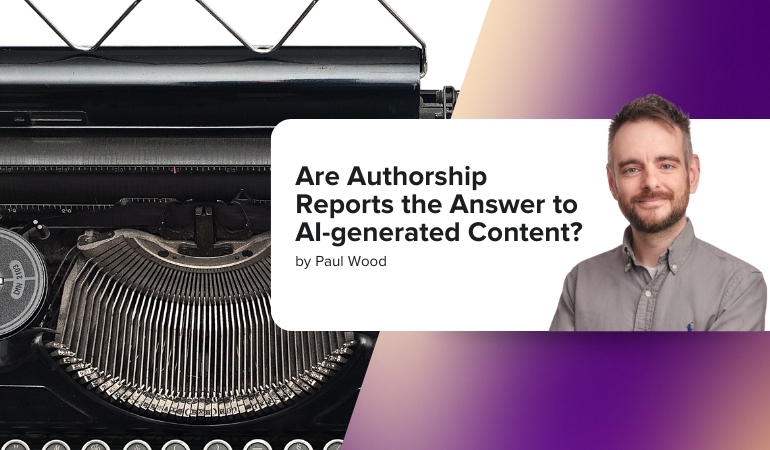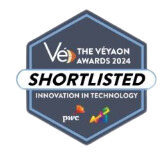As things stand, LLMs used at scale remain notorious for producing (at best) uninspired prose and (at worst) complete fiction.
As many as one in five search results on Google are AI-generated.
That’s according to a fascinating ongoing study taking place. It’s operated by Originality.ai; a provider of AI and plagiarism detection tools.
Keeping in mind that Originality.ai has a vested interest in seeing the web get filled with AI-generated garbage (that its tools can be used to detect), the company is running an ongoing study into the percentage of AI-generated content visible within Google Search.
“Before GPT-2 was released to the public, AI content was detected in only 2.3% of our sampled websites,” says the introduction to the study.
The latest update (November 2024) suggests that 18.50% of content in Google Search is now AI-generated.
Crucially (and obviously), the percentage is increasing with each update to this report. In other words, this phenomenon isn’t going anywhere.
So in effect, we’re getting close to the point where an estimated one in every five search results in Google contains AI-generated content.
That may not be bad in all cases, some of that content can still be useful, but in general, it doesn’t feel like a good thing.
As things stand, LLMs used at scale remain notorious for producing (at best) uninspired prose and (at worst) complete fiction.
Is there a new solution on the horizon?
It was with interest then that, as I began work for the first time in 2025, I spotted a small fingerprint icon in the corner of my Google Doc window.
The icon, it turns out, comes from the Grammarly plugin I have installed within Google Chrome.
For the uninitiated, Grammarly is a bit like a spellchecker on steroids. For years it has diligently sat watching me type and correcting me when I misspell words like ‘diligently’.
It goes further and suggests ways to improve sentence structure. I sometimes find it a bit overzealous but it has saved many a paragraph for me all the same.
Grammarly Authorship and ‘fingerprinting’ documents
Grammarly Authorship is a new part of Grammarly’s product. Once enabled, it tracks you as you type. It requests access to your clipboard so that it knows when you copy and paste from other sources.
It sounds a little creepy, but I also think it has the potential to demonstrate a scalable solution to a growing challenge for the open web; how to differentiate between AI-generated and human-written content.
Here’s how the process works:
- The author turns on tracking within their document
- Authorship requests access to the author’s clipboard
- It tracks the document the author is working on
- It provides a report based on how the document was produced
The report can show:
- The percentage of copy that was typed by the author
- The percentage of copy that was rephrased by Grammarly (ie. where the author used the tool to help them out)
- The percentage of copy that was copied and pasted from a known source (for example a quotation from a website in another tab, or some copy from ChatGPT)
- The time spent working on the document
- The number of writing sessions
The report also colour codes the content, highlighting the different sources, can determine citations, and can even replay the writing process so that a report reviewer can watch how the document was produced in real-time.
Creepy, I know, but also useful.
Watch the video demo from Grammarly:
Who is it for?
The product demo video talks about students. That’s the obvious use case. I dread to think how much AI drivel tutors are forced to read now.
I think, though, that there is a significant professional application here as well.
Firstly, marketing teams regularly rely on copywriting support; having the ability to receive a report (or ‘document fingerprint’ as I like to think of it) with each submission could be invaluable.
Likewise, editors for publications looking to avoid accidental publication of AI-generated content will see a benefit.
The future of search
The thing that excites me most, however, is the potential application for search.
Going back to the study mentioned at the top of this article, if (close to) one in five search results is AI-generated, just imagine how powerful it will be to ‘fingerprint’ your content with metadata that verifies the source of the information.
Grammarly Authorship cannot do that, but I believe the approach taken demonstrates what can be achieved.
It’s not beyond the realms of possibility for an initiative like Schema.org the integrate a new feature that can receive the results of a report from something like Grammarly Authorship.
What next?
Authorship reports raise the barrier to entry for writers, and in the age of AI, I think that’s a good thing.
I’m convinced that before long, teachers, tutors, editors, and marketing teams will insist on content writers providing an authorship report along with content submissions.
These reports will provide confidence that the information produced is human written and that will allow it to carry more weight.
It’s a bit like a piece of artwork produced by an artist versus a piece of art produced by a robot. Both look nice, but I’m not getting on Antiques Roadshow with my AI-generated landscape.
The system demonstrated by Grammarly Authorship isn’t perfect; individuals can generate information using AI and then simply type it out themselves, but when you go to that length to cut corners, you may as well do the work yourself!
Authorship reports raise the barrier to entry for writers, and in the age of AI, I think that’s a good thing.





